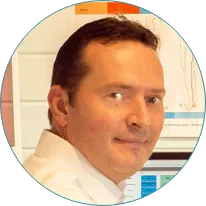Bicom Training + Business Coaching
Video Presentation and instructions to guide you every steps of the way. Manufacturer approved manuals and course material to download or hardcopies delivered. Quiz style exam at the end of each section add to your final certificate.
Train, develop, and engage every employee
Why Bicom Training?
Video Presentation and instructions to guide you every steps of the way. Manufacturer approved manuals and course material to download or hardcopies delivered. Quiz style exam at the end of each section add to your final certificate.
Courses Area
Transform Your Practice
Advanced BICOM Bioresonance Training for Medical Professionals
Course A
An Introduction to Bioresonance
In the 1970s, Dr. Franz Morell and his team developed the MORA biofeedback device, using electromagnetic signals to enhance healthy energies and counteract disease, inspired by homeopathy's concept of water memory.
Course B
Basic Bicom Therapies
Experienced BICOM practitioners achieve 70-80% success, beginners around 60%. The manual explains using body signals with electrodes or substance signals with vials. Simple protocols for beginners, advanced methods in course manuals.
Course C
Basic Principles of Bioresonance
Bioresonance Therapy (BRT) uses traditional Chinese medicine to diagnose and treat imbalances by assessing meridians, chi, and Yin/Yang. It balances energy, addresses toxic strains, and supports organs and systems.
Course D
Setting up and using the Bicom
This course will explains you how to setup your Bicom Optima, test a patients energetic value, run a basic therapy, run scar and interference programs then run Liver, Lymph and Kidney programs. It will be available May 2017
Course E
Basic Testing and Therapy
Lorem ipsum dolor sit amet, consectetur adipiscing elit, sed do eiusmod tempor incididunt ut labore et dolore magna aliqua. amet, consectetur adipiscing elit, sed do eiusmod tempor incididunt ut labore et dolore magna aliqua.
Course F
Advanced Toxins and Allergies
Allergens can cause reactions through various entry points: inhalation, ingestion, infection, injection, and contact. Dr. P. Schumacher’s 1991 classification for bioresonance therapy includes acute, chronic, contact, and pseudoallergies.
Our Team
Meet Our Expert instructors

Chris Russell
Regumed trained therapist and training support for Bicom UK.

Dr Sabine Rauch
One of the most respected and first ever registered Bicom doctorsin Sweden.

Antonina Rome
Expirenced therapist and writer of number of training manuals

David Franklin
Agent for Regumed in the UK, supplier and trainer for Bicom products.
Contact Us
Get In Touch
Lorem ipsum dolor sit amet, consectetur adipiscing elit, sed do eiusmod tempor incididunt ut labore et dolore magna aliqua.
Contact Us
Email: [email protected]
Whatsapp +44 7979 611536
Office: 22 Layton Lane, Leeds, LS19 6RG, UK
